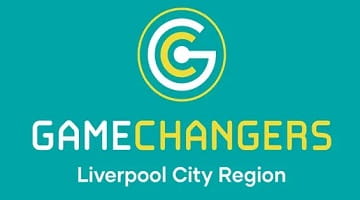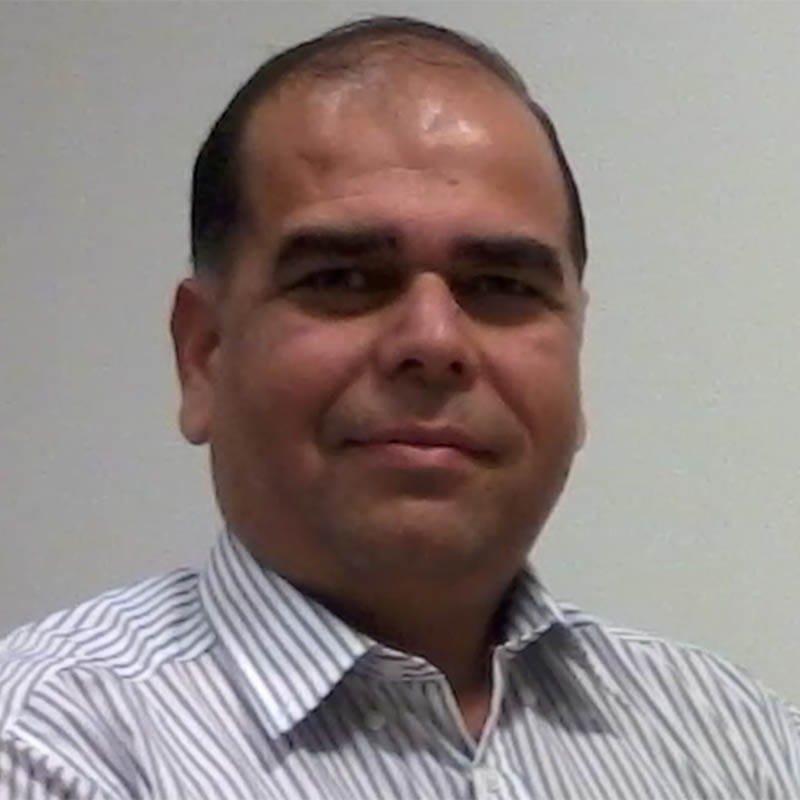2024/25 entry
BSc (Hons) Computer Games Development with Foundation Year
Clearing
Want to study with LJMU this September? Visit our Clearing hub to apply now if you have your grades or register your interest and become a Clearing Insider to receive updates while you wait for your results. Your journey starts with Clearing.
Minimum UCAS points required: TBC
Why study Computer Games Development with Foundation Year at Liverpool John Moores University?
- Dedicated Gaming lab with VR-Ready Workstations, PlayStation Development Kit, Xbox Development Kit , VR (Oculus Rift, HTC Vive, Playstation VR, Gear VR) Development Kit, Microsoft HoloLens, and Motion Capture System
- Incorporating industry standard curriculum - PlayStation First and Unreal Academic Partner into teaching
- Academic society (LJMU IGDA Academic Chapter) and annual student events such as LJMU Game Showcase and LJMU Game Jam
- Opportunity to undertake a year's paid industrial placement thanks to our links with over 450 local, national and international organisations, including SCEE, Lucid Games, Atomicom,Damibu,Setgo Games, Fish in a Bottle, TribePlay in China
- Regular visits by game industry professionals who offer career and technical advice
- Exciting career opportunities with games development companies like Sony Computer Entertainment Europe, Rockstar North, Electronic Arts, Jagex, Lucid Games, TT-Games, Hello Games, PlayDemand, V-Time.
About your course
The BSc (Hons) Computer Games Development with Foundation Year at Liverpool John Moores University is the ideal course if you are interested in this subject but lack the necessary qualifications to study it at degree level.
About the Foundation Year
The Foundation Year is ideal if you have the ability to study for a degree but don't have the qualifications to enter directly onto the Computer Games Development honours degree programme. Once you pass the Foundation Year you will progress directly onto the first year of the honours degree. If you are a full-time UK student, you will qualify for student financial support for the full duration of your course (subject to eligibility criteria).
About the BSc (Hons) Computer Games Development degree
Computer games development is a very technically demanding process and developers are required to possess a wide range of technical skills including computer programming, computer graphics and mathematics.
In addition, they are also expected to have strong knowledge of gaming console and PC hardware architecture. This course will prepare you to be a computer game developer ready to work and succeed in this challenging and exciting industry. The topics typically covered in this course include:
- C/C++ computer programming languages
- Applied mathematics for game physics and computer graphics
- Shader-based 3D graphics programming using industry standard API such as OpenGL and DirectX
- Multi-platforms (PC and consoles) gameplay programming, including techniques such as game content pipelining, multi-threading, artificial intelligence, memory management and optimisation
- Game design, level design, game production and digital game content production
Our Games Technology Lab with its Sony PlayStation 3 and Microsoft Xbox 360 consoles, and industry standard software, together with excellent technical support, mean that you will get plenty of hands-on experience and extensive opportunities to build up a portfolio to show and impress prospective employers.
The School of Computer Science and Mathematics has strong links with many local, national and international games development companies, including SCEE, Atomicom, Lucid Games, Damibu, Setgo Games, Eutechnyx, and Jagex to name but a few. These employers work with us to ensure that the course is current and up-to-date, and that graduates are able to meet the demands of the games industry for skilled developers.
Our strong links also mean that you will have plenty of options when you come to choose your work placement. Students have worked in game development companies in many cities, from Liverpool to Kontich in Belgium as well as Cheng-Du in China.
Your Lecturers
This research-informed and practice-driven course is taught by a team of lecturers who have rich industry background and are research active. All teaching staff have doctoral degrees in their respective areas of expertise and they have professional collaborations with Games industry.
Staff in the Department of Computer Science and Mathematics actively participates in research to further the development of state-of-the-art computing technologies. Research within the School is recognised internationally in the area of Networked Systems and Security, Computer Entertainment, and Neural Networks with funding from EPSRC, BBC and the European Union.
"My study time at LJMU has proved to be a rewarding experience fully supported by the academic learning facilitators who encouraged the innovation and motivation required for the highly competitive games industry."
Fees and funding
There are many ways to fund study for home and international students
Fees
The fees quoted above cover registration, tuition, supervision, assessment and examinations as well as:
- Library membership with access to printed, multimedia and digital resources
- Access to programme-appropriate software
- Library and student IT support
- Free on-campus wifi via eduroam
Additional costs
Although not all of the following are compulsory/relevant, you should keep in mind the costs of:
- accommodation and living expenditure
- books (should you wish to have your own copies)
- printing, photocopying and stationery
- PC/laptop (should you prefer to purchase your own for independent study and online learning activities)
- mobile phone/tablet (to access online services)
- field trips (travel and activity costs)
- placements (travel expenses and living costs)
- student visas (international students only)
- study abroad opportunities (travel costs, accommodation, visas and immunisations)
- academic conferences (travel costs)
- professional-body membership
- graduation (gown hire etc)
Funding
There are many ways to fund study for home and international students. From loans to International Scholarships and subject-specific funding, you'll find all of the information you need on our specialist funding pages.
Employability
There are many career openings for Computer Games Technology graduates in computer games development, software engineering, multimedia authoring, and interactive TV development.
There are many career openings for Computer Games Technology graduates in computer games development, software engineering, multimedia authoring, and interactive TV development.
Many of our graduates have gone on to work for games development companies like Sony Liverpool, Lucid Games, Bizarre Creations, TT-Games, TT-Fusion, Juice Games, Electronic Arts, Eurocom, Spiral House and many more.
"The placement year allowed me to gain invaluable experience and after completing the course I had a number of job offers from respected games developers in the UK."
Alex Dixon, Computer Games Development graduate, now employed as a programmer at Curve Digital.
Student Futures - Careers, Employability and Enterprise Service
A wide range of opportunities and support is available to you, within and beyond your course, to ensure our students experience a transformation in their career trajectory. Every undergraduate curriculum includes Future Focus during Level 4, an e-learning resource and workshop designed to help you to develop your talents, passion and purpose.
Every student has access to Careers Zone 24/7, LJMU's suite of online Apps, resources and jobs board via the LJMU Student Futures website. There are opportunities for flexible, paid and part-time work through Unitemps, LJMU's in-house recruitment service, and we also offer fully funded Discovery Internships.
One-to-one careers and employability advice is available via our campus-based Careers Zones and we offer a year-round programme of events, including themed careers and employability workshops, employer events and recruitment fairs. Our Start-Up Hub can help you to grow your enterprise skills and to research, plan and start your own business or become a freelancer.
A suite of learning experiences, services and opportunities is available to final year students to help ensure you leave with a great onward plan. You can access LJMU's Careers, Employability and Start-up Services after you graduate and return for one-to-one support for life.
Go abroad
LJMU aims to make international opportunities available to every student. You may be able to study abroad as part of your degree at one of our 100+ partner universities across the world. You could also complete a work placement or apply for one of our prestigious worldwide internship programmes. If you wanted to go abroad for a shorter amount of time, you could attend one of our 1-4 week long summer schools.
Our Go Citizen Scheme can help with costs towards volunteering, individual projects or unpaid placements anywhere in the world. With all of these opportunities at your feet, why wouldn’t you take up the chance to go abroad?
Find out more about the opportunities we have available via our Instagram @ljmuglobalopps or email us at: goabroad@ljmu.ac.uk.
A life-changing experience
There's so much more to university than just studying for a degree.
News and views
Browse through the latest stories and updates from the University and beyond
Teaching and work-related learning
Excellent facilities and learning resources
We adopt an active blended learning approach, meaning you will experience a combination of face-to-face and online learning during your time at LJMU. This enables you to experience a rich and diverse learning experience and engage fully with your studies. Our approach ensures that you can easily access support from your personal tutor, either by meeting them on-campus or via a video call to suit your needs.
You will begin the course with a 5-day induction and then spend between 15 to 18 hours per week in the classroom. Independent study is a fundamental element of the course and accounts for around 70% of your weekly study time.
Teaching is mostly via lectures with more informal lab sessions, online activities and small-group tutorials to reinforce ideas discussed in the lectures and to give you a chance to develop ideas with staff and other students. In addition to formal lectures and workshop sessions, there are also regular seminars delivered by external speakers and visiting lecturers.
Work-related Learning
A 12-month paid work placement after Level 5 gives you the ideal opportunity to put into practice all you have learnt at the University and gain new skills as well.
The placement will give you a taste of what its really like to work in the industry and a head start when you come to negotiate your way around the graduate job market.
Support and guidance
Dedicated personal tutor, plus study skills support
This is a supportive and friendly academic School. Should you choose to undertake a years work placement, this support will continue as a supervisor will stay in close contact and visit you two or three times at your workplace.
Your Lecturers
This research-informed and practice-driven course is taught by a team of lecturers who have rich industry background and are research active. All teaching staff have doctoral degrees in their respective areas of expertise and they have professional collaborations with Games industry. Staff in the Department of Computer Science and Mathematics actively participates in research to further the development of state-of-the-art computing technologies. Research within the School is recognised internationally in the area of Networked Systems and Security, Computer Entertainment, and Neural Networks with funding from EPSRC, BBC and the European Union.
Assessment
Assessment varies depending on the modules you choose, but will usually include a combination of exams and coursework.
You will be assessed by a combination of coursework and exams plus an independent final year project which contributes substantially to your final mark. Your tutors will give prompt and constructive feedback via Canvas (our virtual learning environment), face-to-face or in writing. This will help you to identify your strengths as well as the areas where you may need to put in more work.
Course tutors
Our staff are committed to the highest standards of teaching and learning
Facilities
What you can expect from your School
This programme is delivered in the Byrom Street complex of LJMUs City Campus. Here you'll find high quality lecture theatres, meeting and seminar rooms plus social spaces and a large café. The Avril Robarts Library is just minutes away on Tithebarn Street.
The university reserves the right to withdraw or make alterations to a course and facilities if necessary; this may be because such changes are deemed to be beneficial to students, are minor in nature and unlikely to impact negatively upon students or become necessary due to circumstances beyond the control of the university. Where this does happen, the university operates a policy of consultation, advice and support to all enrolled students affected by the proposed change to their course or module.
Further information on the terms and conditions of any offer made, our admissions policy and the complaints and appeals process.












